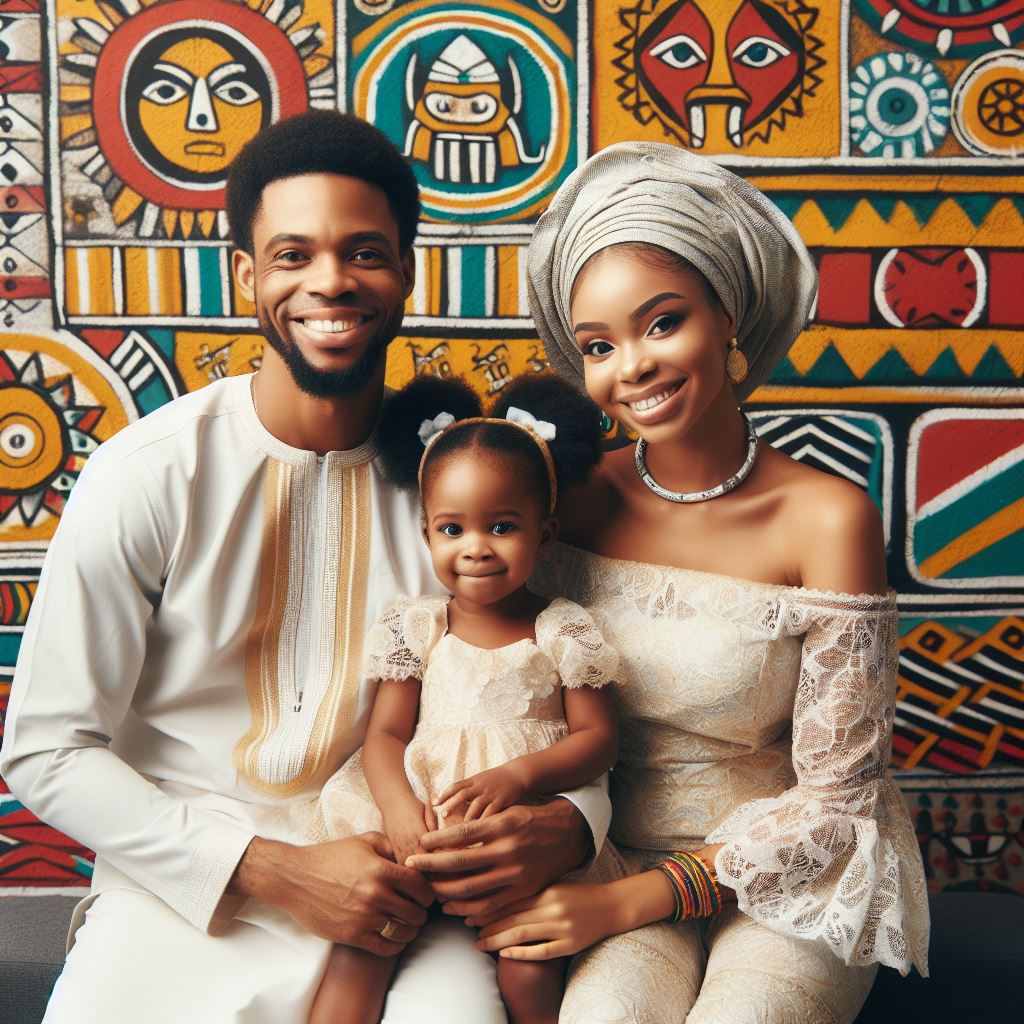Introduction
Cloth vs Disposable Diapers: In the bustling landscape of parenting decisions, the choice between cloth and disposable diapers remains a pivotal one for Nigerian parents.
The diaper dilemma is not just about convenience and cost; it transcends into a realm of environmental impact, cultural preferences, and health considerations.
This post delves into the Cloth vs. Disposable Diapers debate, exploring the intricacies that make this decision significant in the context of Nigeria’s diverse parenting landscape.
The importance of selecting the right diaper type in Nigeria extends beyond mere practicality.
Nigerian parents navigate a myriad of factors when making this decision, influenced by cultural nuances and economic considerations.
Cloth diapers, once the traditional choice, are making a resurgence due to environmental consciousness and cost-effectiveness.
Disposable diapers, on the other hand, offer convenience and time-saving benefits but come at a higher monetary and ecological cost.
Nigeria’s climate and waste management infrastructure play a pivotal role in this decision-making process.
Cloth diapers, with their reusable nature, align with sustainable practices, contributing to a greener environment.
This resonates with a growing eco-conscious mindset among Nigerian parents, emphasizing the long-term impact of individual choices on the planet.
Economic considerations also come to the forefront, as Nigerian families weigh the upfront cost of cloth diapers against the ongoing expense of disposable ones.
The financial strain of raising a child prompts many to reevaluate their choices, seeking a balance between affordability and practicality.
Furthermore, the cultural significance of diapering practices in Nigeria adds another layer to this decision.
Traditional beliefs and practices surrounding child-rearing influence parents’ choices, making the decision a blend of modern convenience and cultural continuity.
In fact, the Cloth vs. Disposable Diapers debate in Nigeria transcends the basic choice of diapering methods.
Parenting Made Just for You
Get personalized Parenting Solutions tailored to your child’s needs. Transform your parenting journey with expert guidance in 1-3 days.
Get StartedIt intertwines with environmental awareness, economic realities, and cultural legacies, making it a decision that reflects the dynamic tapestry of parenting in this vibrant nation.
Read: Baby Carriers: A Nigerian Parent’s Guide
Cloth Diapers
When it comes to choosing between cloth diapers and disposable diapers, there are several factors to consider.
In Nigeria, cloth diapers have been gaining popularity due to their cost-effectiveness, environmental benefits, and potential to reduce diaper rash.
Advantages of cloth diapers
One of the major advantages of cloth diapers is their cost-effectiveness.
While the upfront cost may be higher than disposable diapers, cloth diapers can be reused multiple times, saving money in the long run.
Additionally, cloth diapers can be passed down to younger siblings or even sold second-hand, further reducing costs.
Cloth diapers are also environmentally friendly. They reduce the amount of waste going into landfills and can be considered a more sustainable option.
With Nigeria’s waste management challenges, choosing cloth diapers can contribute to a cleaner environment.
Another advantage of cloth diapers is that they have a lower chance of causing diaper rash.
Disposable diapers often contain chemicals and fragrances that can irritate a baby’s sensitive skin.
Cloth diapers, on the other hand, are made of natural fibers that allow for better airflow and reduce the risk of diaper rash.
Disadvantages of cloth diapers
However, cloth diapers also have their disadvantages. They can be time-consuming to maintain.
Cloth diapers need to be washed and dried regularly, which can be a hassle for busy parents.
Unveil the Perfect Name that Tells Your Family's Story
Let us help you find a name that embodies your family's values, traditions, and dreams. Our personalized consultation weaves cultural insights to create a name that's uniquely yours.
Get StartedAdditionally, using cloth diapers may require extra laundry loads, adding to the already overflowing pile.
Types of cloth diapers available in Nigeria
Furthermore, cloth diapers have a limited absorption capacity compared to disposable diapers.
They may not be as effective at containing leaks, especially for heavy wetters or during overnight use.
This can lead to frequent changes and potential discomfort for the baby.
In Nigeria, there are various types of cloth diapers available in the market.
Traditional cloth diapers are flat pieces of fabric that need to be folded and secured with pins or clips.
Prefold diapers, on the other hand, come with several layers of absorbent fabric already folded.
All-in-one diapers have an absorbent core sewn into a waterproof cover, making them more convenient and similar to disposable diapers.
In short, cloth diapers offer several advantages such as cost-effectiveness, environmental friendliness, and reduced risk of diaper rash.
However, they also come with disadvantages like being time-consuming to maintain and having limited absorption capacity.
It is important for parents in Nigeria to weigh these pros and cons when deciding on the best diapering option for their child.
Read: Choosing the Right Diaper for Your Nigerian Baby
Disposable Diapers
Advantages of disposable diapers
- Disposable diapers offer convenience for busy parents, making diaper changing easier.
- They have a higher absorption capacity, reducing the chance of leaks and ensuring the baby stays dry.
- Disposable diapers eliminate the need for laundry, saving time and effort for parents.
Disadvantages of disposable diapers
- Disposable diapers contribute to environmental concerns as they take a long time to decompose.
- In the long run, using disposable diapers can be expensive compared to cloth diapers.
- Disposable diapers contain chemicals that can increase the risk of diaper rash for babies.
Popular Disposable Diaper Brands in Nigeria
Some popular disposable diaper brands available in Nigeria include:
- Pampers
- Huggies
- Molfix
- Snuggles
- Babyjoy
When it comes to diaper choices, disposable diapers offer their own set of advantages and disadvantages.
The convenience of disposable diapers cannot be denied, especially for busy parents who may not have the time for frequent diaper changes.
With higher absorption capacity, disposable diapers keep the baby dry for longer durations, reducing the chances of discomfort and irritation.
In addition, disposable diapers eliminate the need for regular laundry, making them a practical option for parents.
However, it is important to consider the disadvantages of disposable diapers as well.
One major concern is the environmental impact of disposable diapers. These diapers take hundreds of years to decompose in landfills, contributing to pollution and waste.
Moreover, in the long run, disposable diapers can be more expensive compared to cloth diapers. For families on a tight budget, this can be a significant factor to consider.
Another disadvantage is the higher risk of diaper rash associated with disposable diapers. The chemicals present in these diapers can cause irritation and discomfort for the baby’s sensitive skin.
Despite these disadvantages, many parents in Nigeria still prefer disposable diapers due to their convenience and ease of use.
Some popular disposable diaper brands available in Nigeria are Pampers, Huggies, Molfix, Snuggles, and Babyjoy.
It is important for parents to carefully weigh the advantages and disadvantages before making a decision on which type of diaper to use for their baby.
Ultimately, the choice between cloth and disposable diapers depends on individual preferences, lifestyles, and affordability.
Regardless of the choice, ensuring the baby’s comfort and hygiene should always be the top priority.
Read: Choosing Baby Gear: Safety Tips for Parents

Factors to Consider for Choosing the Best Option
When it comes to diapering your baby in Nigeria, the choice between cloth and disposable diapers can be a significant decision.
Understanding the factors that influence this choice is crucial for providing the best care for your little one.
Here are key considerations to help you make an informed decision:
Lifestyle and Convenience
The fast-paced nature of modern life often influences parents to opt for convenience.
Disposable diapers are undeniably easier to use and dispose of, making them a preferred choice for busy parents.
However, cloth diapers are making a comeback, thanks to innovations like easy-to-use snaps and liners, making them more user-friendly.
Consider your lifestyle and daily routine to determine which option aligns better with your family’s needs.
Cost Considerations
In a country like Nigeria, where budgeting is a crucial aspect of family planning, the cost of diapers can play a pivotal role.
While cloth diapers have an upfront cost, they can save you money in the long run as they are reusable.
On the other hand, disposable diapers may seem more expensive initially but can be more convenient for families on the go.
Assess your budget and weigh the long-term savings against immediate expenses to make an economically sound decision.
Environmental Impact
Nigeria, like many other nations, faces environmental challenges, making sustainability an essential factor.
Cloth diapers are eco-friendly, as they are washable and reusable, reducing the amount of waste generated.
Disposable diapers, however, contribute significantly to landfills.
If environmental impact is a top concern for your family, cloth diapers may be the more responsible choice.
Baby’s Health and Comfort
Your baby’s well-being is, of course, paramount.
Consider your baby’s skin sensitivity and comfort when choosing between cloth and disposable diapers.
Cloth diapers, often made from natural fibers, are breathable and less likely to cause irritation.
Conversely, disposable diapers may contain chemicals that could potentially cause skin issues.
Pay attention to your baby’s reactions to determine the most comfortable option.
In review, the choice between cloth and disposable diapers in Nigeria boils down to a personalized evaluation of your lifestyle, budget, environmental values, and your baby’s health.
By considering these factors, you can make an informed decision that aligns with the unique needs of your family and contributes to the well-being of your baby and the environment.
Read: Twin Education: Early Learning Steps
Conclusion
Let’s recap the pros and cons of cloth and disposable diapers.
Both cloth and disposable diapers have their advantages and disadvantages.
It is essential to consider factors such as cost, convenience, and environmental impact when making a decision.
However, the most crucial factor in choosing the best diaper option for your baby should be their well-being and individual needs.
While cloth diapers are more sustainable and cost-effective in the long run, disposable diapers offer convenience and are easier to use.
Ultimately, the decision should be based on personal factors such as lifestyle, budget, and support system.
Parents should prioritize their baby’s comfort, skin health, and overall well-being above all else.
It is essential to remember that there is no one-size-fits-all answer. What works for one family may not work for another.
Regardless of your choice, proper diaper changing practices, such as frequent changing and diligent hygiene, should be followed to keep your baby happy and healthy.
Consult with pediatricians, other parents, and reliable sources to gather more information and make an informed decision.
Ultimately, the cloth vs. disposable diaper debate is subjective, and what matters most is the care and love you provide to your little one.




